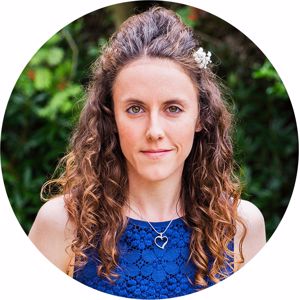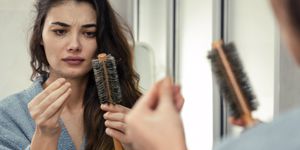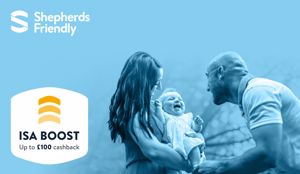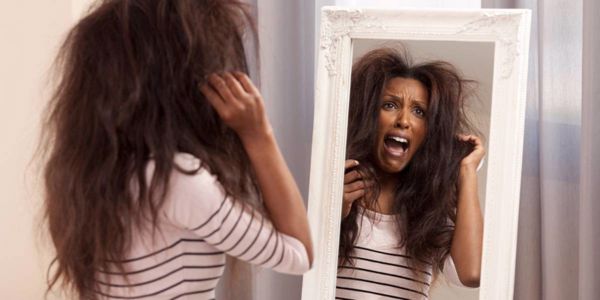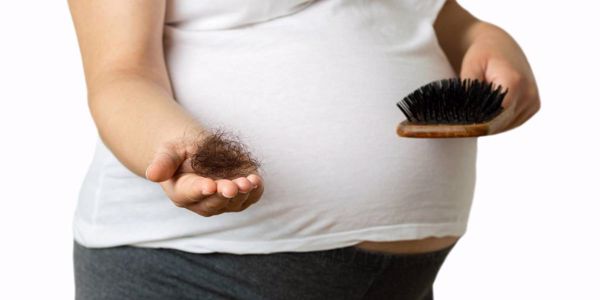As every woman who has ever had a baby will tell you, postnatal hair loss is no joke.
And after years, I am still shedding every time I wash my hair! But there are a few things you can do to help minimise the breakage and take extra care of your hair.
Here are a few of my tips and tricks for allowing a faster hair recovery:
What Is Postnatal Hair Loss?
Between the weeks after you have had your baby up to six months after, up to 90% of women will experience some hair loss.
It’s all down to hormones, sadly, which are coming down after your pregnancy. Specifically oestrogen and progesterone, and they have been very high during your pregnancy and are now coming back down to normal levels.
While this change is occurring, you will find bodily changes in skin and hair. If you experienced thicker and more lustrous hair while carrying your child, it’s likely all that will start to fall out after baby’s arrival.
After six months of hair loss, you should notice an improvement. If yours is not slowing down, it is a good idea to see your GP and get a blood test to check your iron levels and your thyroid to make sure there are no underlying issues.
I still lose a lot of hair, and my bloods have been fine on three tests I have had in the last four years. Some women just experience more hair loss than others, it’s important to know what your normal is compared to post-pregnancy.
So what are the things you can do to help you through this stage of being a new parent?
Take a Daily Multivitamin
If you’re breastfeeding it’s recommended that you take a vitamin supplement anyway, but even if you’re bottle feeding you will find there are benefits to giving your body a boost of essential nutrients after the arrival of your baby.
Breastfeeding parents can take a supplement designed specifically for their overall health because there are additional needs to be met when producing milk. But it all depends upon your feeding choices and choosing whichever brand on the market suits you. For your hair's health, make sure that it contains vitamins D, iron, zinc and omega 3.
Don’t Brush Your Hair When It’s Dry if It’s Curly, Wavy or Fine
Most hairdressers will encourage you to brush your hair daily when it’s dry, but this can actually cause more breakage if your hair is very fine, curly or wavy.
Your hair can be brittle and fine after pregnancy due to the hormone changes, so it’s recommended that you only brush your hair gently when dry or properly when you’re washing it.
Dampen the hair under some warm water (not hot) and gently comb or brush your hair, starting at the ends and working your way up to the scalp. Take care to be gentle and ensure you use conditioner on your hair every time you shampoo it as well.
Choose Your Brush Carefully
I cannot stress enough how the type of brush you’re using will make a world of difference to your hair and scalp health.
I was dubious at first, but I was given a brush with silicone bristles, and I was amazed! The silicone is gentle, and the two-tiered spines on the brush allow for gentle detangling and smoothing of the hair strands.
This is what every woman post-baby needs to treat themselves to… a decent and soft hair brush.
Choose Your Hair Accessories and Shampoo With Care
You can buy scrunchies and hair bands with soft silky material, but so long as they contain no metal or have no catches they are perfect for minimising breakage.
I have only used hair bands and scrunchies that have no metal on or in since I was about 25 years old. I wore my hair up for months after having my son due to breastfeeding him and needing to keep my long curls out of the way, but this contributed to me losing more hair.
Try and gently put your hair up and never too tightly, and use silk or satin material hair bobbles to tie it up with. Or use a silk headband to just push the hair away from your face. Avoid hair grips when possible, as they break fine hair so easily.
As far as shampoo goes, try to find one that is low in sulphites or free of sulphites entirely. Using fewer chemicals on your hair and more natural methods for a few weeks should also help. Shop around and read labels choosing a brand you know will suit your hair type and condition.
Eating a Healthy Diet Will Help Your Scalp To Repair and Encourage Hair Growth
The thing about hair loss is that if those hairs are ready to fall out, you simply cannot stop them. But by encouraging a healthy scalp and healthy body your hair will feel replenished faster.
The last thing a new tired mother wants to do is cook, but here are a few of my tips for getting what you need easily and simply with a few meal ideas with the best enriching foods that can help.
Oats – Oat-based cereal for breakfast with low-fat dairy milk or oat milk with added vitamins.
Eggs – Omelette, add in some meat and dairy products for calcium. Baked beans on the side.
Spinach – Have you ever made your own pizza? You can buy a basic margherita from the supermarket and top it with your favourite protein and some spinach leaves, delicious and full of calcium and iron.
Sweet potatoes and carrots – Roast these in the oven and serve with your favourite protein.
Avocado – If you’re a fan of avocados, add them to your dishes for a nutrient boost of Vitamin E.
Kiwi and prunes – These contain Vitamin C, and Iron, respectively, Vitamin C helps you to absorb iron which comes from things like prunes. You could even make a smoothie for a faster intake.
Beans, seeds, lentils and peas – If you like any of these, think about making a rich bowl of rice and beans in a flavour you’ll enjoy. Roasted peppers and tomatoes tossed in will sweeten it up. Or make a chickpea and bean curry if you like a bit of spice. Beans contain lots of nutrients like Iron, Folic Acid and Zinc, all good things for your body and your hair.
If you’re struggling with hair loss, make sure to see your GP and ask for a blood test; read up about multivitamins at your local pharmacy and find one to suit your needs.
You can attempt some of my tips above, such as the no metal hair accessories and brushing your hair with more care depending upon your style and type of hair, as well as eating a nutrient-rich based diet for a few months to see if that helps.
It’s worth the effort just to try a few of these things because, as a new mother, your self-esteem can become low if everything has changed, but trust me when I say that it will get better; just remember to take care of yourself as well as your little one.

